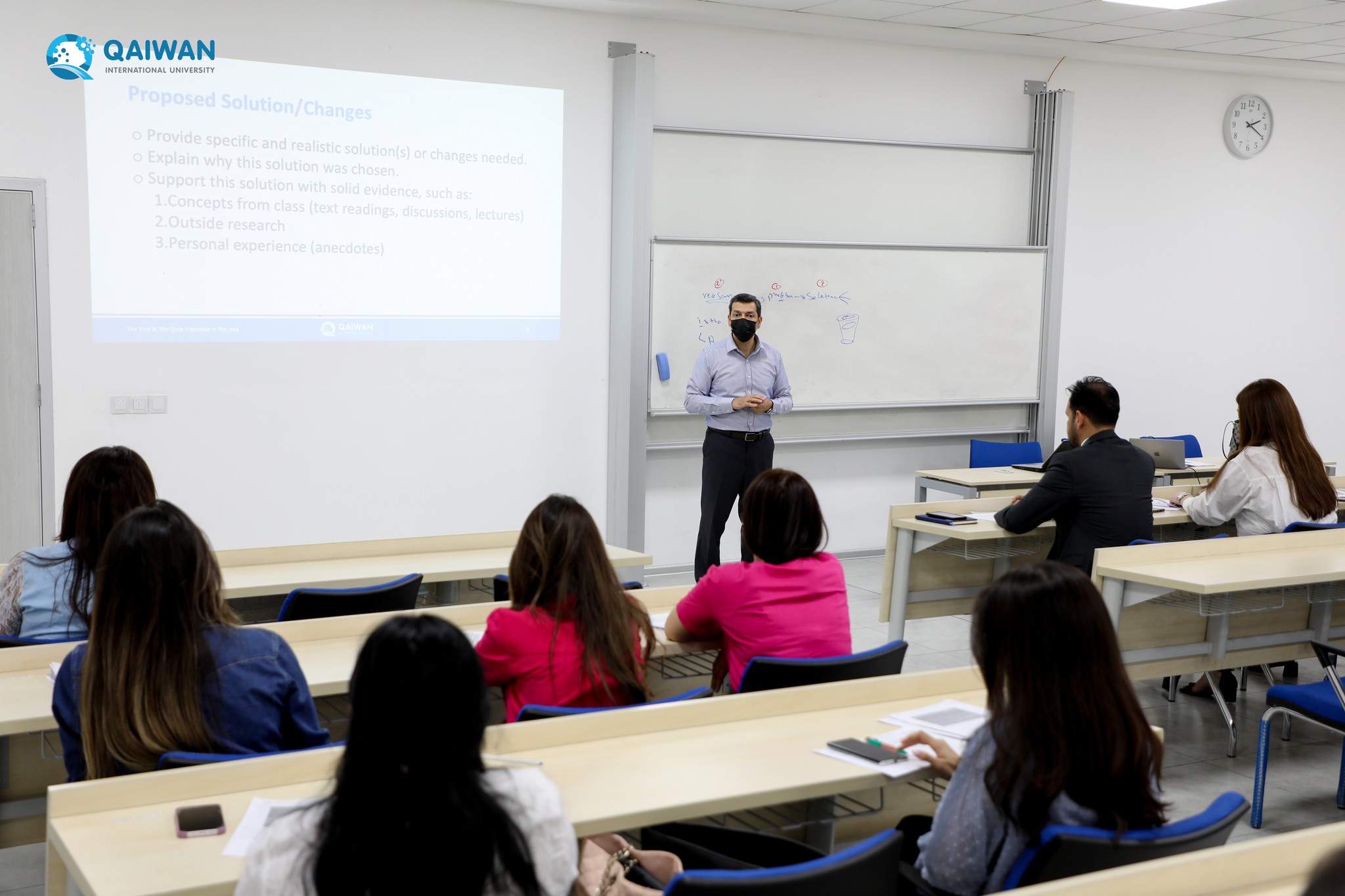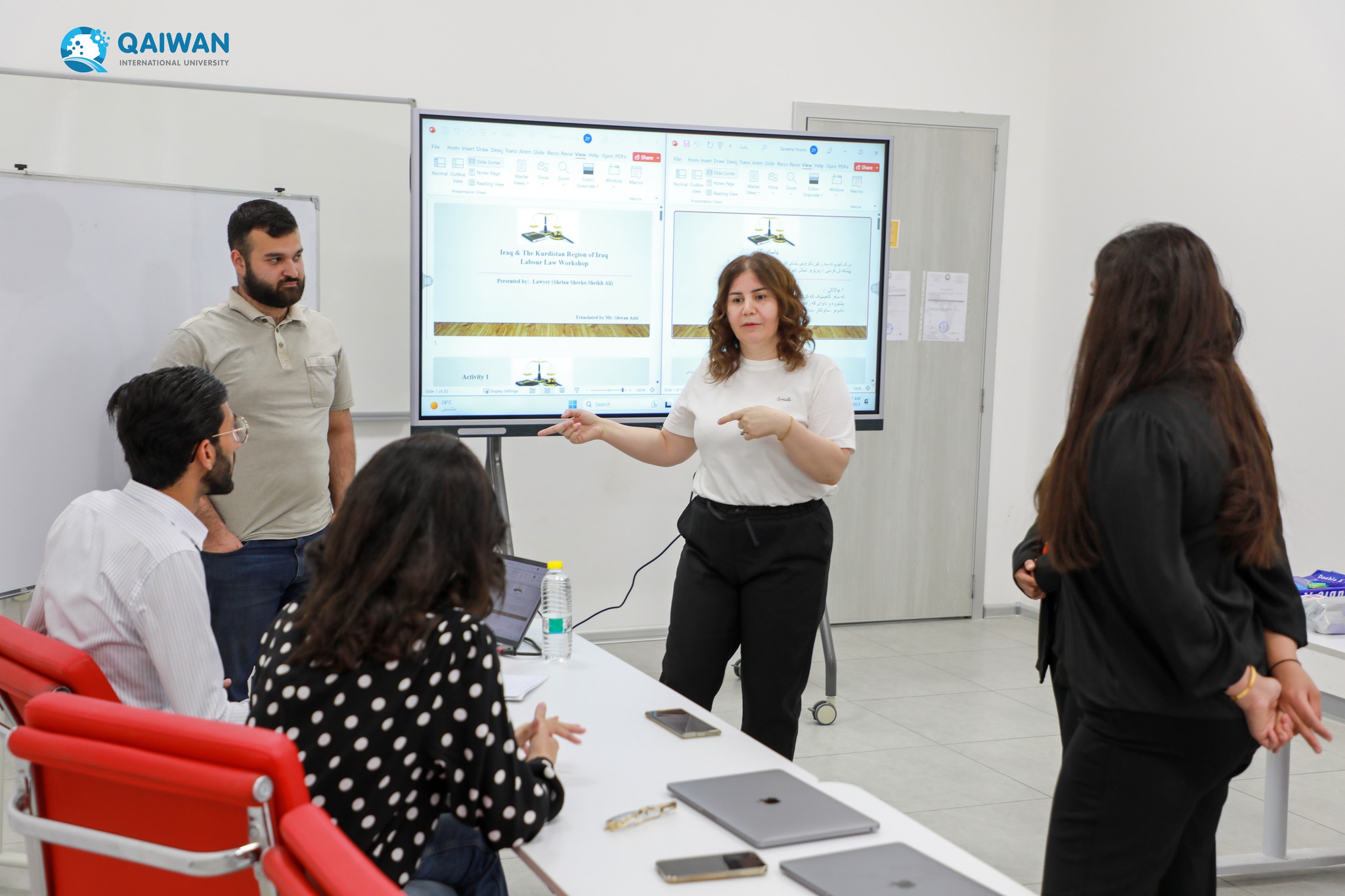The field of human resource development provides innovative academic programmes and sustainable research by being an outstanding center for knowledge and talent advancement in human resource development, synergizing with academic fields of education, communication, and humanities in the future. The program produces graduates who are competent in the areas of human resources as HRD practitioners and who have the potential to become managers or leaders in an organization. Besides, it emphasizes strengthening the students’ skills to become component communicators and negotiators across different cultures and audiences in an organization, with the potential to become change agents in organizations by responding and adapting to changing environments.


| 1 | Awarding Institution | Universiti Teknologi Malaysia (UTM) |
|---|---|---|
| 2 | Teaching Institution | Qaiwan International University |
| 3 | Programme Name | Bachelor of Human Resource Development |
| 4 | Final Award | Bachelor of Human Resource Development |
| 5 | Programme Code | SHMR |
| 6 | Professional or Statutory Body of Accreditation | Ministry of Higher Education |
| 7 | Language(s) of Instruction | English |
| 8 | Mode of Study (Conventional, distance Learning, etc) |
Full-Time |
| 9 | Mode of Operation (Franchise, self-govern, etc) | Franchise |
| 10 | Study Duration | 4 years |
| # | Classification | Credit Hours |
|---|---|---|
| 1 | Compulsory modules | 19 credits |
| 2 | Core Courses | 51 credits |
| 3 | Specialization | 33 credits |
| 4 | Elective | 12 credits |
| 5 | Industrial Training | 12 credits |
| Total Credit Hours to Graduate | 127 credit hours | |
1. To produce graduates who are competent in the areas of human resources.
2. To produce graduates who are competent as HRD practitioners.
3. To produce graduates who have the potential to become managers or leaders in the organization.
4. To produce graduates who are competent communicators and negotiators across different cultures and audiences in the organization.
5. To produce graduates who have the potential to become change agents in the organization by responding and adapting to changing environments. Successful graduates will improve their capacity to provide leadership, manage resources, design, and implement processes for organizational learning, evaluate and develop staff, liaise with government, organizations, and stakeholders, plan, monitor, and review policies and programmes, implement change in organizations and demonstrate awareness of the multiple perspectives and interconnectedness of learning, development work, and life.
| # | PLO | |
|---|---|---|
| 1 | Describe advanced and comprehensive theoretical and technical knowledge and demonstrate relevant skills in the field of human resource development. |
|
| 2 | Demonstrate intellectual independence in the application of knowledge by applying critical, analytical, and evaluation skills in the field of human resource development. |
|
| 3 | Apply a range of practical methods and procedures to solve essential problems in the field of human resource development. |
|
| 4 | Work together with different people in diverse learning and working communities. |
|
| 5 | Convey ideas both in written and oral formats in a well-structured manner using appropriate forms of presentation, confidently, accurately, and coherently in an appropriate context to a diverse range of audiences. | |
| 6 | Use a broad range of digital information, media, and technology applications to complete relevant tasks. | |
| 7 | Use a combination of numerical and graphical data in completing relevant tasks. | |
| 8 | Show autonomy, leadership, and responsibility in working towards pre-determined goals and outcomes. | |
| 9 | Engage effectively in self-directed lifelong learning and professional development. | |
| 10 | Demonstrate an appreciation of entrepreneurial competency in the context of socio-political, economic, and cultural issues. | |
| 11 | Demonstrate adherence to ethical issues and act professionally in a variety of social and professional environments through a deep understanding of local and global issues. | |
Work eligibility for graduates
QIU © All Rights Reserved | by QIU IT-Office | @ 2022 QIU University